When building a business you know what you want it to be but reality might have different plans.
Reality usually wins.
Businesses often have a "right size" and picking ideas that align you with this truth will save you from wasting years of your life.
So lets go over a couple examples to really make this idea clear before we get into how to take advantage of it.
Lets say you have a coffee shop.
A coffee shop as good as Starbucks in every dimension.
Good branding, good product, good prices etc.
Now lets put that coffee shop in two different "realities".
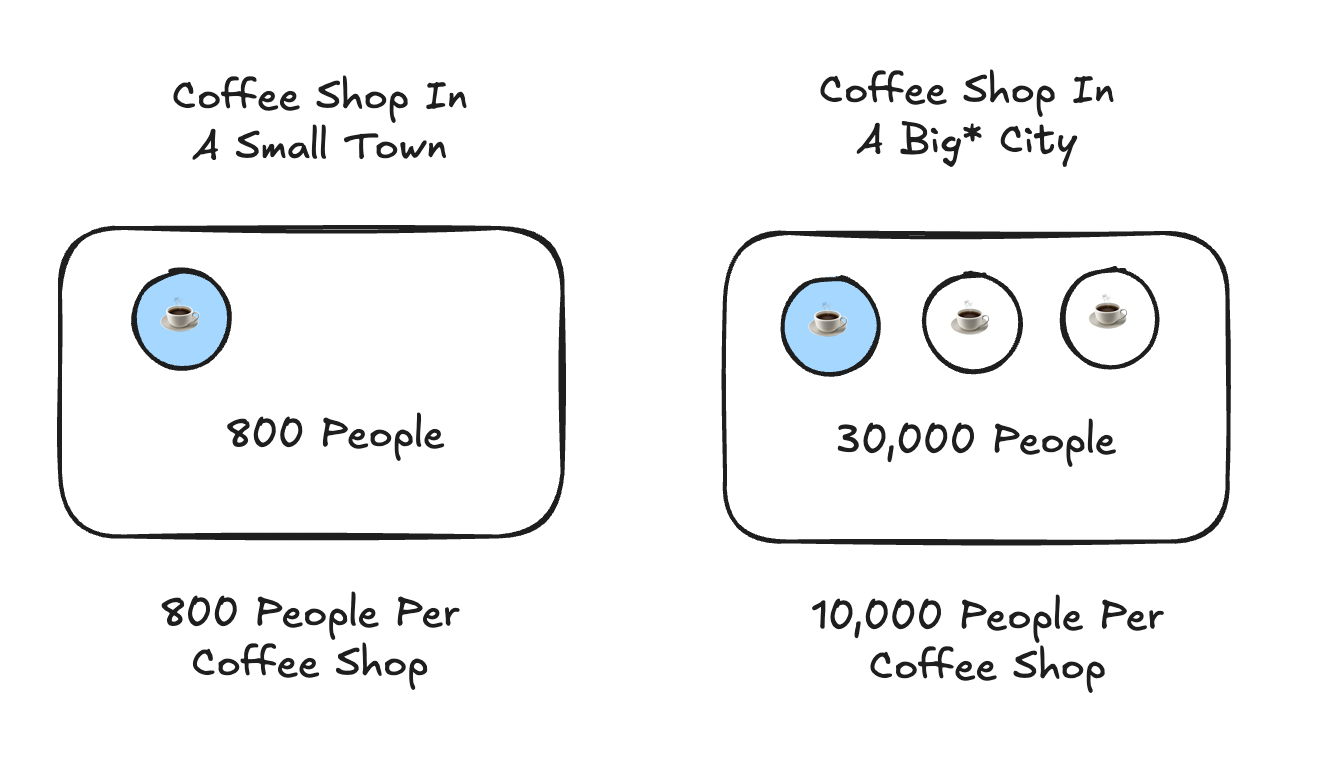
The only thing that changed here is location but the realities faced by the business will be very different.
In the case of a business that relies heavily on foot traffic the number of feet matter a lot.
"Location, location, location." - real estate people since the dawn of time.
Just by picking a bigger city the coffee shop owner will have more than 10x the opportunities to get a customer even with more competitors in the same market.
The shop in the city is likely to have 10x the revenue of the shop in the small town.
10x is not a small difference in size.
800 people might be enough to support a coffee shop.
800 people very well might not be.
The coffee shop in the city may need a staff of 10 to work.
The coffee shop in the small city may only work if the owner and their children do all the labor.
The right size for the coffee shop in the small town is tiny.
The rights size for the coffee shop in the bigger city is probably 10x bigger.
The right size of a business is deeply affected by its Total Addressable Market ( TAM ).
But thats not the only thing.
Let's play with the laws of physics and economies of scale in another example.
I will use dairy farming as an example since I know it well.
In this scenario we have 3 theoretical businesses.
1 Small. 1 Large. 1 Impossibly Large.
They all sell milk and all get the same price per unit.
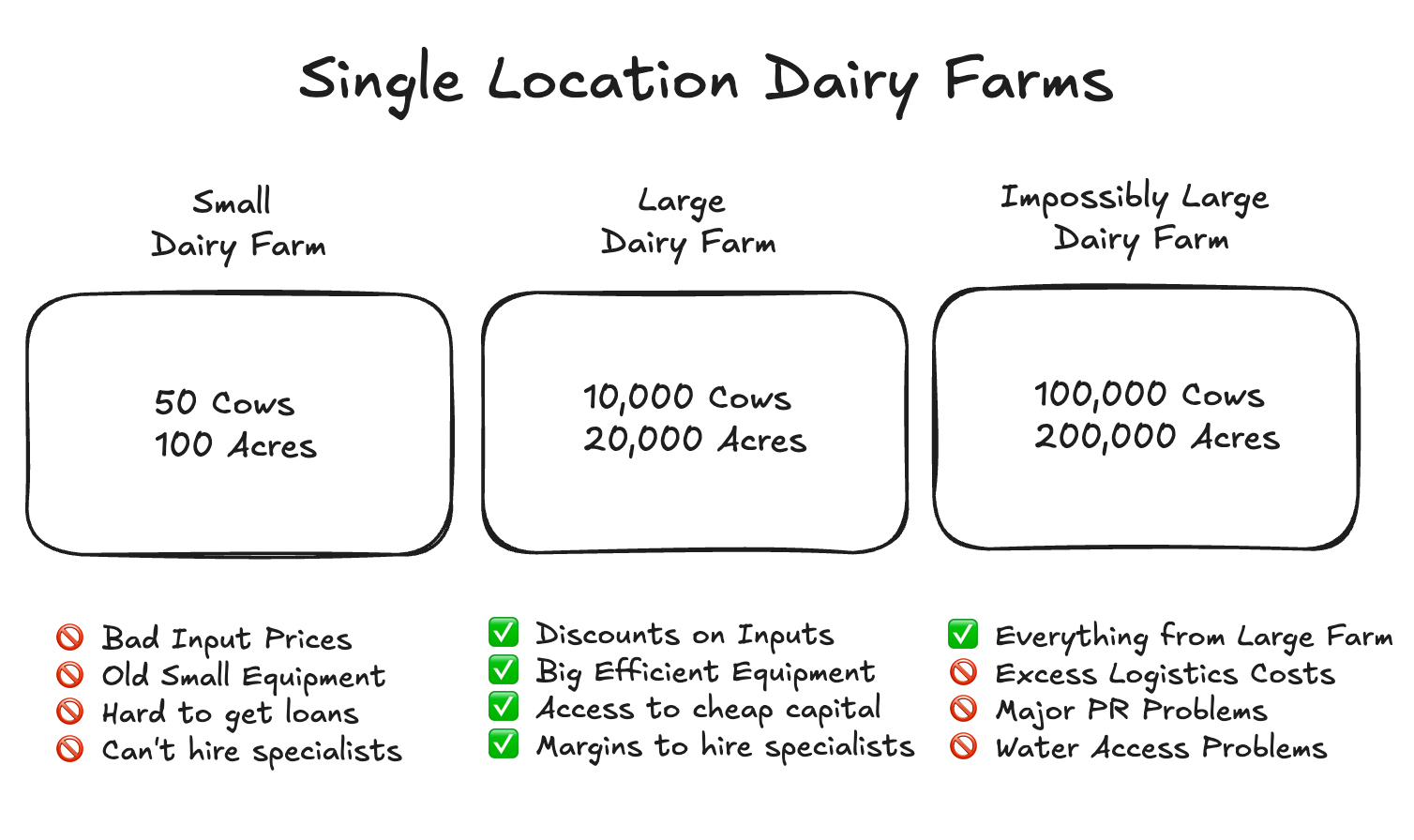
The small farm is going out of business.
The large farm is printing cash.
The impossibly large farm isn't actually being built because the industry learned through trial and error that the "right size" of a single location facility is probably something around 5,000 to 15,000 cows with current technology.
In this scenario you get discounts when bargaining with other businesses to buy inputs and when working with the bank to get loans.
There are also just certain things that work better with a larger business like attracting talent and investing in cost saving infrastructure.
But "bigger is better" breaks at some point.
Cows eat a lot, drink a lot, and poop a lot.
You need to harvest feed and bring it to them.
You need to pump water to water them.
You need to haul their manure back to the same fields you harvested feed from.
.. and you need to keep doing this at greater distances the larger you get.
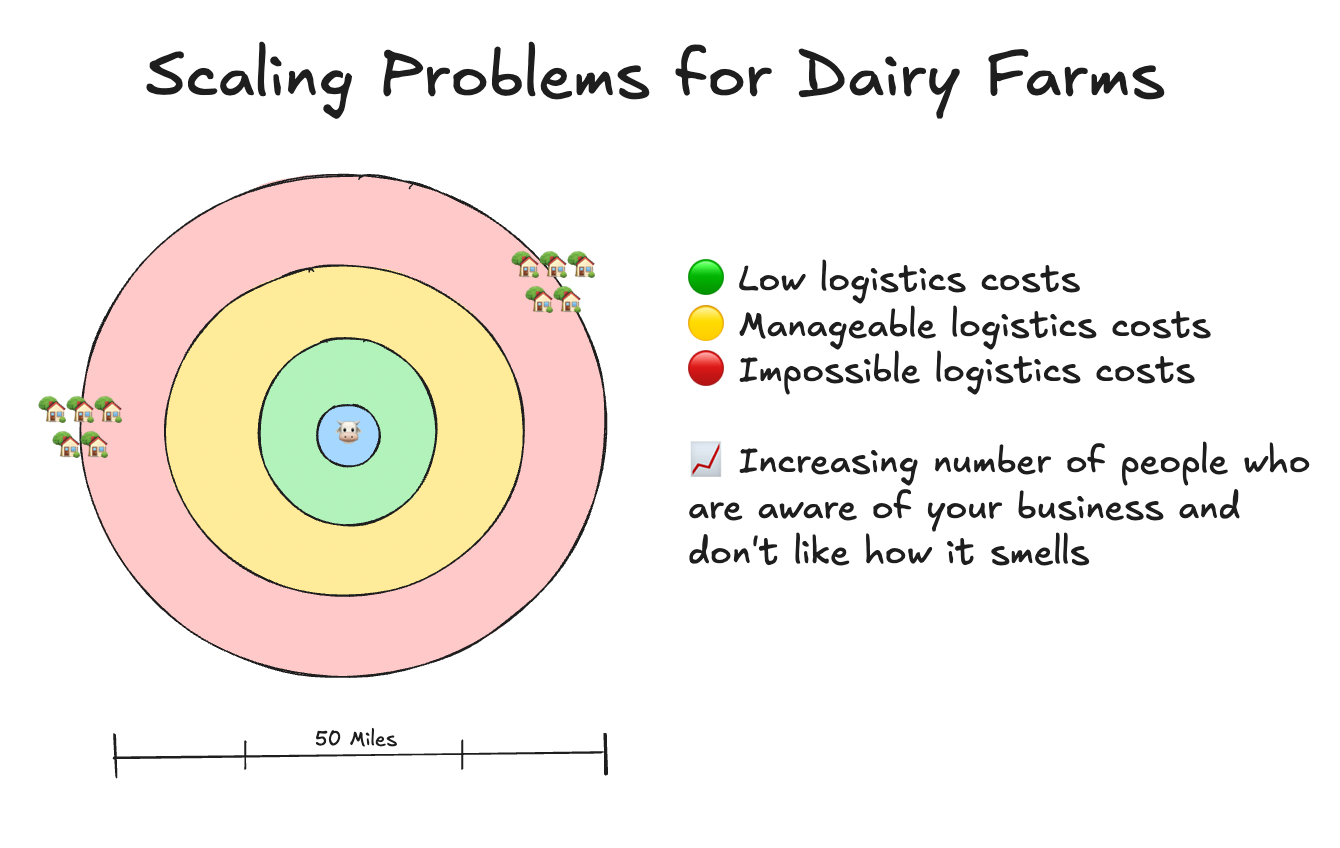
The cost of diesel fuel and trucking does not scale endlessly and so dairy farms can only get so big at a single location until they start to be economically worse and start acquiring new problems like annoying too many neighbors and using up too much water.
The right size of a business is deeply affected by physical reality.
One final example for fun.
Lets talk luxury goods.
The benefit of a luxury goods business is high margins not scale.
Scale is actually the enemy.
Exclusivity and ubiquity are opposites.
Here's a scenario with three different luxury brands.
Or more likely the story of the same brand over time as it grows.
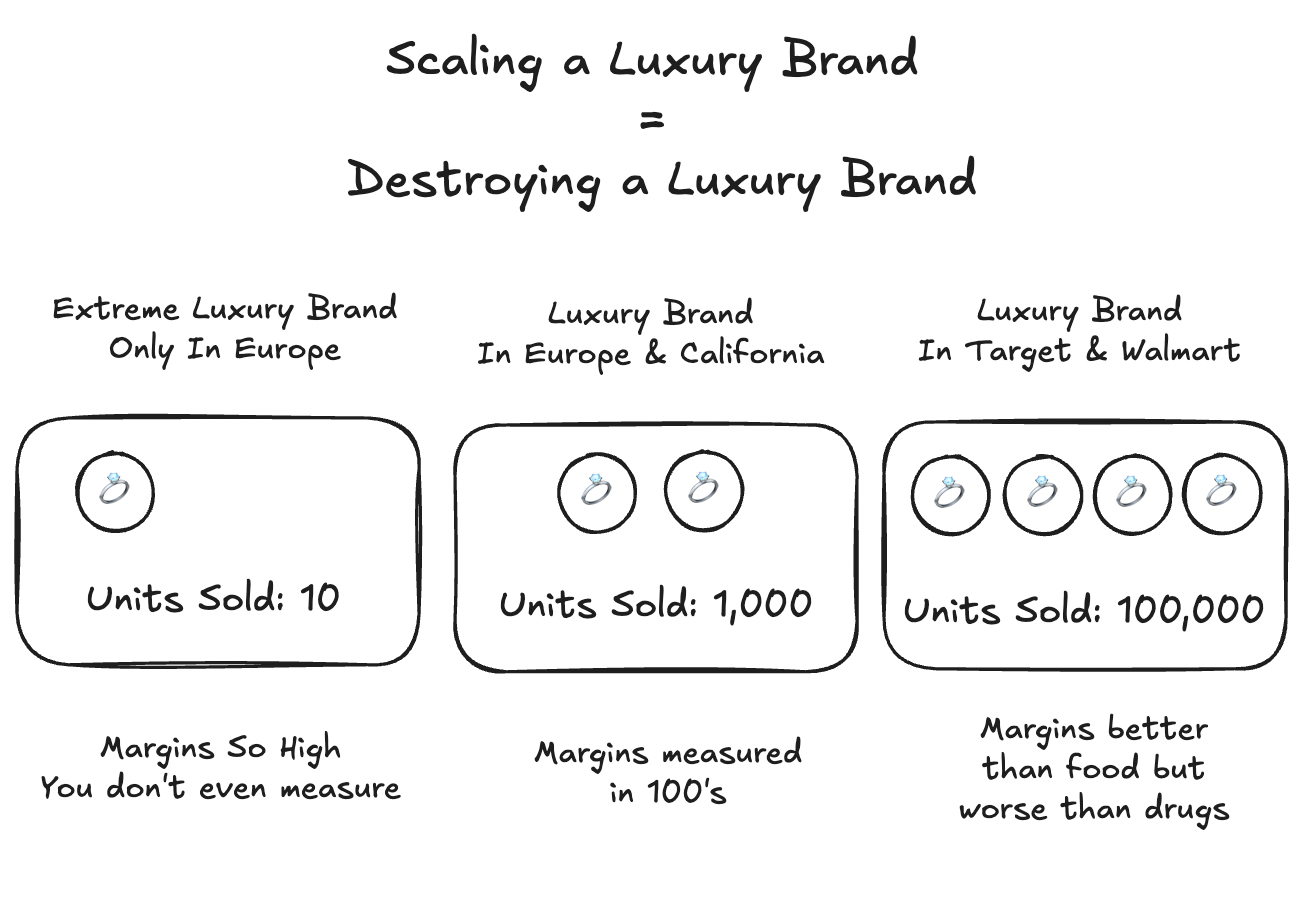
Since the value created is heavily tied to the number of people who can have the product and how much you can charge you continually erode margin as you push for scale.
I have no experience in this business but I'm sure rules of thumbs exist for how to balance this and hit the sweet spot depending on your goals.
The right size of the business is deeply affected by what you sell.
Bigger isn't always better.
Smaller isn't always worse.
So how do I use this to my advantage?
Choose to only be in businesses that are the "right size" or you have a realistic plan to get the right size fast.
Being the right size is like having a tailwind pushing you ahead like being born in a good country or starting a business in a fast growing market.
Everything works better.
Being the wrong size business is like having one arm tied behind you back and having nothing you can do about it.
Starting and building any business is going to be very hard so you might as well give yourself every advantage.
This is why I focus mostly on software.
Software can be a good business from day 1, if you find paying customers, and they continue to become a better business almost forever.
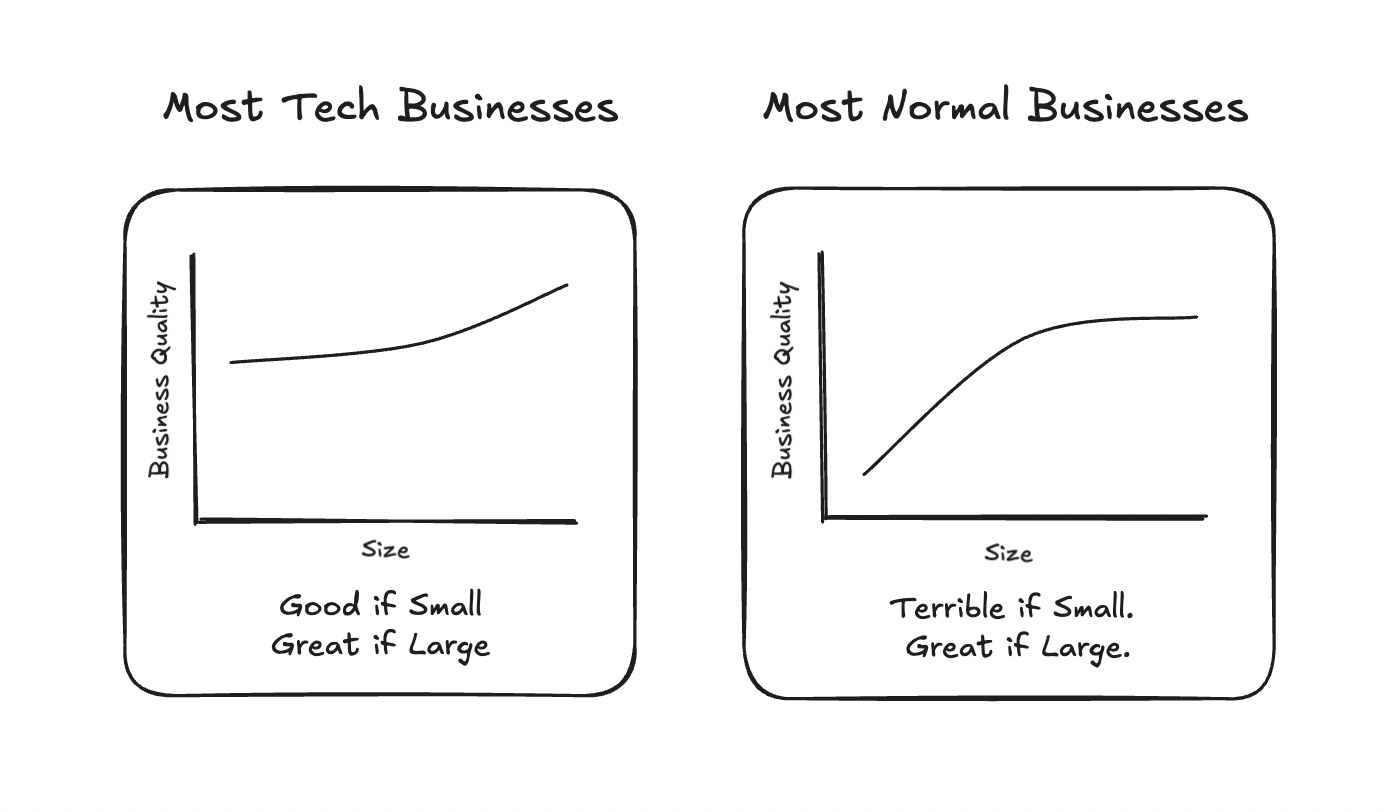
More traditional businesses usually require lots of capital to get to the right size. If you have access to capital this doesn't matter. If you don't this will deeply affect your chance at success.
Knowing what the right size of your business should be helps you plan how you go about your business.
If I was starting a business that relied on foot traffic I would only do it if I could find a good physical location and operate at full capacity.
If I was starting a farm today I would only do it if I had access to a large amount of capital and could build infrastructure to capture the efficiencies of scale.
If I was starting a B2B software company I would just start because it's a good business at almost any size.
Choose your own adventure but pick a business that's the right size.
